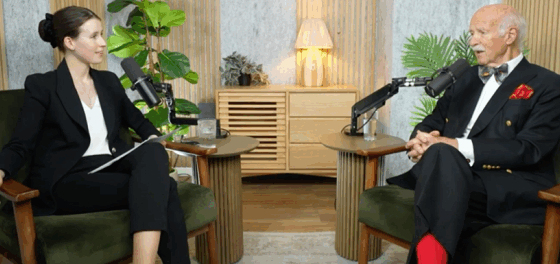Key takeaways
- Disproportionate impact: Radiohead’s 2025 European tour primarily boosted mid-sized hospitality markets (Bologna, Copenhagen), showing little effect in larger cities (London, Madrid).
- Bologna demand spike: Bologna’s forward demand indicators soared, peaking at 73% Year-on-Year (YoY) for the second concert night.
- Inventory scarcity: The severity of the market boost directly relates to limited hotel supply. Bologna has <10,000 rooms; Copenhagen ≈25,000; London ≈150,000.
- Copenhagen occupancy: Copenhagen reached 45% hotel occupancy sold out for the peak demand night (Dec 5) two months in advance.
- Pricing lag: Despite high demand, many hotels are slow to adjust rates. Bologna’s prices were only up 44% YoY, and Copenhagen’s 10% YoY in the aggregate.
- Revenue opportunity: The significant gap between demand signals and current rates presents a prime dynamic pricing opportunity, especially for Bologna hoteliers.
- Context is key: The event is a clear example of how an unexpected demand event can instantly change market conditions in supply-constrained areas.
Radiohead are returning to the tour circuit for the first time in nearly a decade, causing frantic searches from their fans and an instant sell-out of all available tickets.
These are more intimate affairs than the mega tours of the world’s biggest pop stars, crossing just five locations, all within Europe, and all being held in large music venues of 15,000 to 20,000 capacity rather than stadiums.
It therefore is not enough to move the needle for local hospitality markets in bigger metropolitan areas, such as the tour dates in Berlin, London or Madrid, but it is having a sizeable impact in Bologna and Copenhagen, causing prices to more than ‘Creep’ up in both. And we promise that’s the second-to-last Radiohead pun of the article, so you can count on there being ‘No Surprises!’
Bologna beckons for Radiohead fans as hotel demand rises
The biggest beneficiary of the Radiohead tour is undoubtedly Bologna.
The Italian city, renowned for its beautiful medieval and Renaissance architecture and ancient university, will be hosting something altogether more avant-garde from November 14 to 18. Radiohead’s four shows across that span will be held in the Unipol Arena, which has a capacity of 20,000.
Those 80,000 tickets, most of which will be in the hands of domestic and international travelers, are helping to boost the local hospitality market, which is showing up in forward demand indicators.
This is most prominent in Online Travel Agency (OTA) and travel metasearch site queries for accommodation, which have shot up to one of their highest levels over the coming 180 days and are considerably higher than would be expected on a typical search and booking curve.
This spike hits its highest point on November 15, which is the second night of Radiohead’s presence in Bologna.
It would appear that most fans who have been lucky enough to secure tickets are searching for accommodation options at this stage, with the initial registration and allocation concluding in mid-September.
There will be further sales through official resales channels on October 13th, which would likely result in another bump to search queries.
At this stage searches are the main driver for a rise in forward-looking demand indicators compared to the same days last year.
On the second night in Bologna, YoY demand indicators in our proprietary index are up 73% Year-on-Year (YoY), while across the tour dates and immediately surrounding nights, indicators are typically up around 50% or more.
Copenhagen calling for Radiohead fans as hotel demand rises
Copenhagen also hosts the band for four tour dates, generating an appreciable boost to its hospitality market in and around those nights, which fall on December 1, 2, 4, and 5.
These peak on the fourth night, which falls on a Friday, making travel and staying over easier for concert-goers, which likely lies behind further elevated strong search levels on December 6.
This peak point of overall demand indicators on night four represents one of the strongest points for accommodation searches in Copenhagen over the next 180 days. The second highest point for forward demand indicators in our index across the remainder of 2025, underlining the importance of this tour visit for local accommodation vendors.
Overall, comparing like-for-like with 2024, daily demand indicators are a third higher for the opening night of Radiohead in Copenhagen and up 18% for the final night, when overall demand indicators are highest, as are hotel rates, sitting at an average of $326 for a standard hotel room at the time of writing.
Already with two months to go to the concerts 45% of hotel inventory in the Danish capital is sold out at the point of peak demand, 11% more than the following Friday.
Radiohead’s impact on hotel room pricing in European tour destinations
Radiohead left little time between announcing their tour before rapidly moving to ticket registration and then allocation. This all happened in a matter of a few weeks within September, meaning hotels have had to react quickly and remain in a phase of adjustment to these segments of elevated demand.
At the time of writing, average weekly prices for a standard hotel room in Bologna during the Radiohead concerts are 44% higher than in the corresponding period in 2024 and in a more modest 10% higher in Copenhagen, but there is more room for growth as lookers move over to bookers.
Comparing prices on September 9 with 30 days prior and hotels have largely picked up on the signals and are typically making moves to push rates upwards.
In both cities, the greatest extent of change is an 18% boost to prices versus a month ago, with that change coming on the first night of concerts in Bologna and the last in Copenhagen.
However, the average gain across all nights in these cities is around half that, indicating that plenty of hotels are in the early stages of adjusting revenue strategies.
The trendline should be for further gains, given how elevated demand signals are compared to last year and that this is a rapidly evolving scenario that hotels are actively reacting to.
This is especially so in the smaller market of Bologna, where forward demand indicators are up 57% and 73% YoY on October 17 and 18, respectively, but prices had barely adjusted in the data compared to 30 days ago.
Hoteliers here can likely expect average hotel rates to head closer to $300 per night from their position at the time of writing of $238 to $254 as available inventory diminishes.
Putting Copenhagen and Bologna alongside the larger hospitality markets that Radiohead will be visiting contextualizes the importance of inventory supply and why smaller markets are more impacted by major demand-generating events such as these.
While Berlin, London and Madrid are seeing no appreciable uplift, with hotels advertising rates that broadly align with inflationary change, or even in the case of Madrid advertising rates below the same period in 2024, the impact rises in Copenhagen and then to an even greater degree in Bologna, reflecting availability.
London has around 150,000 hotel, resort or apartment hotel rooms, but Copenhagen has 25,000 and Bologna has less than 10,000 total rooms, allowing more pricing power for hoteliers with each reduction in supply.
This is a prime example of how context is key and how an unexpected event can change market conditions in the blink of an eye.
Hotels that are behind the curve of demand and their competitors will leave revenue on the table and so it is critical to see these demand signals in real-time and adjust dynamically.
Use forward-looking search data to understand and act on demand in your market
By leveraging forward-looking demand data, you can gain a competitive edge. These insights, gathered from sources like hotel and flight searches on OTAs and metasearch sites, provided an early warning system for massive demand shifts, like the one caused by the surprise Radiohead tour announcement.
This would enable savvy hoteliers in Bologna and Copenhagen to proactively adjust pricing and create targeted promotions before their competitors even saw the trend reflected in their own on-the-books data.
And Destination Marketing Organizations can develop a marketing campaign toward high-value source markets, before their competitor destinations see the trend reflected in their hotel on-the-books data.
To equip yourself with the best data to traverse the complexities of modern event tourism, learn more here.
About Lighthouse
Lighthouse is the leading commercial platform for the travel & hospitality industry.
We transform complexity into confidence by providing actionable market insights, business intelligence, and pricing tools that maximize revenue growth.
We continually innovate to deliver the best platform for hospitality professionals to price more effectively, measure performance more efficiently, and understand the market in new ways.
Trusted by over 70,000 hotels in 185 countries, Lighthouse is the only solution that provides real-time hotel and short-term rental data in a single platform. We strive to deliver the best possible experience with unmatched customer service. We consider our clients as true partners—their success is our success.
For more information about Lighthouse, please visit: https://www.mylighthouse.com.
Jonathan Gough
PR & Content Manager
Lighthouse
























